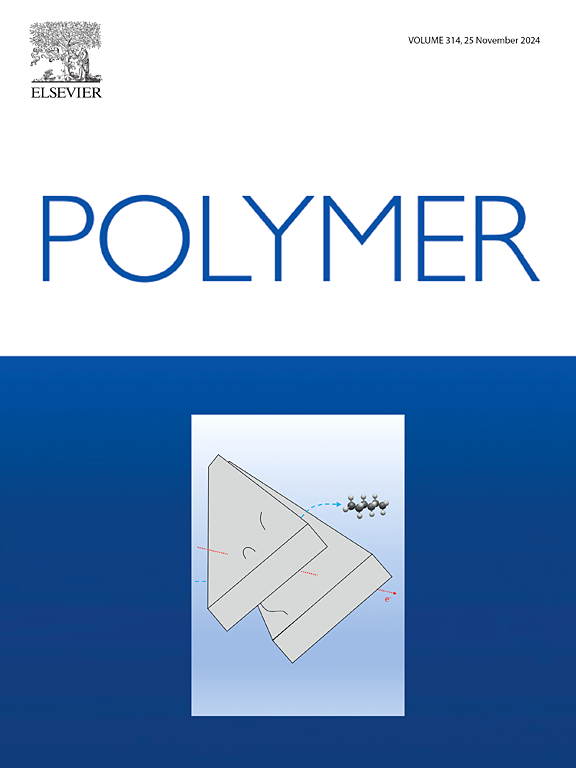Lightweight fluorinated block copolyimide aerogels for high-temperature shape memory
IF 4.1
2区 化学
Q2 POLYMER SCIENCE
引用次数: 0
Abstract
Shape memory polyimide aerogels represent a promising class of next-generation materials for aerospace applications, owing to their intrinsic low density, unique thermo-induced shape memory behavior, and exceptional resistance to extreme environmental conditions. However, aromatic polyimides exhibit poor shape memory performance due to high chain rigidity and strong π-π stacking interactions, while increasing the flexibility of the molecular chains can disrupt the formability of the three-dimensional structure of aerogels. In this study, we successfully synthesized a series of block copolyimide aerogels by systematically manipulating the molecular structure. Through controlling the polymerization degree of soft segments, block copolyimide aerogels demonstrated thermo-induced shape memory behavior at temperatures of approximately 320 °C, with both shape recovery and fixation rates exceeding 97 %. Notably, these block copolyimide aerogels exhibit good formability and lightweight with a low density below 0.19 g cm−3. Furthermore, after more than ten shape memory cycles, the recovery and fixation rates remain consistently above 95 %, indicating excellent long-term stability. This study offers new insights into the development of lightweight and high-temperature shape memory materials, with significant potential for future aerospace applications.


用于高温形状记忆的轻质氟嵌段共聚物气凝胶
形状记忆聚酰亚胺气凝胶由于其固有的低密度、独特的热诱导形状记忆行为和对极端环境条件的优异抵抗能力,代表了航空航天应用的下一代材料。然而,芳香族聚酰亚胺由于其高链刚度和强π-π堆叠相互作用而表现出较差的形状记忆性能,而增加分子链的柔韧性会破坏气凝胶的三维结构的可成形性。在这项研究中,我们通过系统地操纵分子结构,成功地合成了一系列嵌段共聚亚胺气凝胶。通过控制软段聚合度,嵌段共聚物气凝胶在约320℃的温度下表现出热诱导形状记忆行为,形状恢复和固定率均超过97%。值得注意的是,这些嵌段共聚物气凝胶具有良好的成型性和轻质性,密度低于0.19 g cm-3。此外,经过十多次形状记忆循环后,恢复和固定率始终保持在95%以上,表明了良好的长期稳定性。这项研究为轻量化和高温形状记忆材料的发展提供了新的见解,在未来的航空航天应用中具有巨大的潜力。
本文章由计算机程序翻译,如有差异,请以英文原文为准。
求助全文
约1分钟内获得全文
求助全文
来源期刊

Polymer
化学-高分子科学
CiteScore
7.90
自引率
8.70%
发文量
959
审稿时长
32 days
期刊介绍:
Polymer is an interdisciplinary journal dedicated to publishing innovative and significant advances in Polymer Physics, Chemistry and Technology. We welcome submissions on polymer hybrids, nanocomposites, characterisation and self-assembly. Polymer also publishes work on the technological application of polymers in energy and optoelectronics.
The main scope is covered but not limited to the following core areas:
Polymer Materials
Nanocomposites and hybrid nanomaterials
Polymer blends, films, fibres, networks and porous materials
Physical Characterization
Characterisation, modelling and simulation* of molecular and materials properties in bulk, solution, and thin films
Polymer Engineering
Advanced multiscale processing methods
Polymer Synthesis, Modification and Self-assembly
Including designer polymer architectures, mechanisms and kinetics, and supramolecular polymerization
Technological Applications
Polymers for energy generation and storage
Polymer membranes for separation technology
Polymers for opto- and microelectronics.
 求助内容:
求助内容: 应助结果提醒方式:
应助结果提醒方式:


